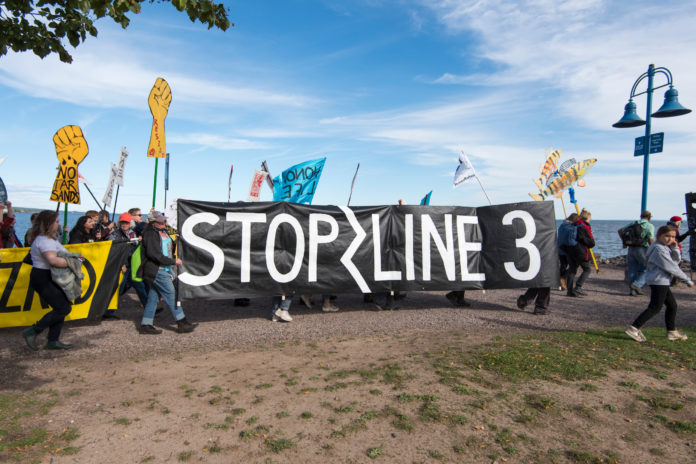(The Center Square) — The Minnesota Court of Appeals on Monday affirmed the state’s Public Utilities Commission approval of the Line 3 Replacement Project.
The Court of Appeals determined the MPUC’s approval of the Line 3 environmental impact statement, certificate of need, and route permit were accurate.
The 337-mile new pipeline replaces 283 miles of the current Line 3, and will span Minnesota from the North Dakota border to the Wisconsin border.
“After six years of community engagement, environmental review, regulatory and legal review, it’s good to see confirmation of previous decisions on the Line 3 Replacement Project,” said Vern Yu, Enbridge executive vice president. “From the start, the project has been about improving safety and reliability for communities and protecting the environment.”
Line 3 was constructed in the 1960s, prior to modern federal and state laws applicable to pipeline construction, routing, and operation. A report conducted in 2014-15 concluded 70% of the approximately 140,000 joints showed signs of extreme corrosion. Additionally, the study concluded 3,000 joints would exhibit corrosion deeper than 50% of the pipeline’s thickness, and estimated that number would increase to 25,500 joints by 2030.
During its peak operating period, Line 3 transported 760 kilo barrels per day, but reduced that level to 390 kilo barrels per day due to safety considerations after 2008.
In her opinion, Judge Lucinda E. Jesson wrote: “These decisions were not made in a vacuum. Rather, they followed vigorous public debate. In addition to everyday Minnesotans — some in favor and some opposed to replacement Line 3 — the commission heard from interested groups including multiple Indian tribes with interests impacted by existing Line 3 or that would be impacted by the replacement pipeline; environmental organizations opposed to replacing the pipeline; trade organizations that hoped to use the pipeline and unions that hope to build it; and the department of commerce, which asserted a lack of need for the replacement pipeline. And the commission deliberated against a backdrop of a deteriorating existing pipeline and a federal consent decree directing Enbridge to replace existing Line 3, if it could obtain state authority to do so.”
The Sierra Club opposes the pipeline replacement project, and issued a new release Monday afternoon in which it quoted Margaret Levin, state director of the Sierra Club North Star Chapter, as well as representatives from other environmental groups.
“Today’s decision is deeply disappointing and paves the way for the Minnesota Public Utilities Commission to continue to disregard the health of our communities, water, and climate as well as the ways of life and treaty rights of Ojibwe people,” Levin said. “Construction on Line 3 is underway — all eyes now turn to the Biden administration to live up to their commitments to climate action and Indigenous rights by stopping Line 3.”
Court of Appeals Judge Peter M. Reyes, Jr., published a dissenting opinion. “This court owes no deference to the PUC’s analysis or decision when it is based on an error of law, arbitrary or capricious, or unsupported by substantial evidence,” he wrote.
Noting Reyes’ dissent were Winona LaDuke, executive director and co-founder of Honor the Earth, and Brent Murcia, certified student attorney for the Youth Climate Intervenors.
“Today’s court decision is a step backwards, but not the end of this years-long fight to protect the health and livability of our state and climate,” Murcia said. “Fossil fuel companies’ profit-driven desire to ship more oil does not equal a need for a new pipeline. The world is changing, and now more than ever, we know that building an unnecessary new tar sands pipeline with the emissions of 50 coal plants represents an old and reckless way of thinking. This movement will continue working to resist this toxic project, and President Biden must act now to ensure it is never completed.”

















